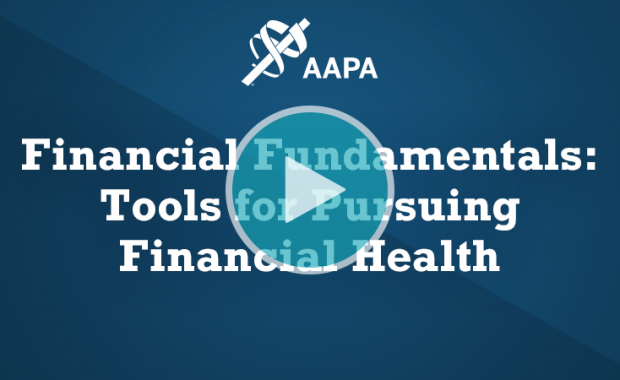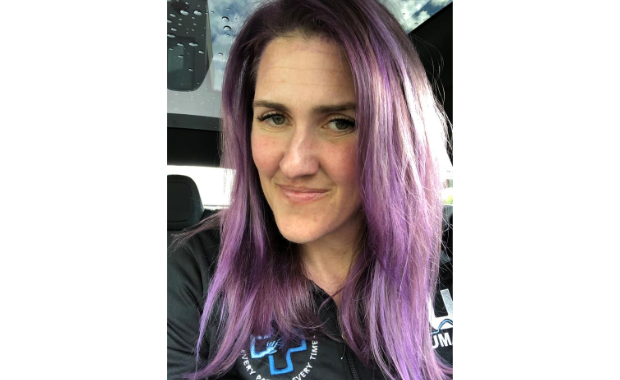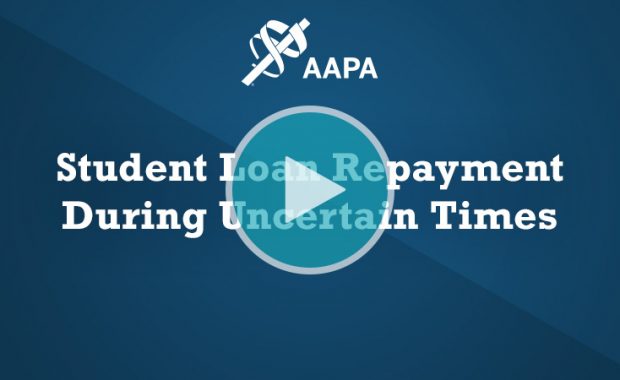Career Resources
PA Investment Opportunities
You may be familiar with terms like 401K, Roth IRA, employer match, and Health Savings Account, but are you confident you know how to leverage these savings opportunities effectively? In this article, PA 4 Finance Founder, Andrew Baker, shares his advice on kick-starting your savings and calculating your personal risk tolerance.
Ethical Guidelines for the PA Profession
AAPA has developed ethical guidelines for the PA profession that offer a framework for your decision-making.
Personal Finance for PAs
No matter where you are in your PA career, it’s beneficial to have a basic knowledge of saving, debt management, and use of credit. Gain insight, strategies, and tools to meet your financial goals with the help of these AAPA and partner resources.
Building Collegial Connections
Relationships are the cornerstone of PA practice. PAs can promote positive connections with colleagues through trust, respect, communication, and clarity.
Continuing Medical Education (CME) Optimization
Make the most of your CME budget and learn how to tailor your clinical education to your individual learning style and needs.
Spring Cleaning Your Finances
Are you nervous about upcoming student loan payments? Do you want to reevaluate your budget but don’t know where to start? “Spring Cleaning Your Finances” is a quick guide to reviewing your spending, setting big goals, and planning for financial freedom.
Effective Patient Communication: Background, Benefits + Best Practices
This article is an overview of effective patient communication, from background to benefits to strategies and pitfalls that the clinician should know.
When Good Intentions Go Bad: Stories in Medical Ethics
Ethical issues may arise with each patient encounter. Join AAPA for this FREE webinar on what to do when the ethical choice isn’t clear.

Here’s How Every PA Can Play a Role in Mental Healthcare
Megan Pinder, MMS, PA-C, is an advocate for psychiatric patients both personally and professionally. She responds to questions about PAs’ role in mental health, how access, socioeconomic status, and stigma impact patient mental health, and how to advocate for mental health patients.

Health Inequities: How PAs Can Help Bridge the Care Gap
The PA Foundation’s Vital Minds podcast featured a discussion on how health disparities have been exacerbated by COVID-19, the role socioeconomic factors and insurance may play in health disparities, and how PAs – and other allies – can help bridge the care gap.

Expert Advice on Providing Trans-Affirming Healthcare
AAPA invited PAs Lauren Eisenbeis and Jo Rolls to host Huddle’s latest Ask Me session on transgender healthcare. Eisenbeis and Rolls used their expertise from years of experience to provide advice and resources for PAs to provide trans-affirming healthcare to patients.

Financial Fundamentals: Tools for Pursuing Financial Health
In this one-hour webinar, learn what it takes to get into PA school and how to make yourself a more competitive applicant.

How PAs Can Provide Compassionate Care to Survivors of Interpersonal Violence
AAPA enlisted Katherine Thompson, PA-C, a practicing PA in emergency medicine and urgent care for four years, to respond to Huddle’s Ask Me on interpersonal violence (IPV) and forensic medicine. Read her advice on how healthcare providers can identify and manage IPV survivors.

Student Loan Repayment During Uncertain Times
In these uncertain times, you may be wondering what options PAs have for paying back their student loans after graduation.

Sponsored
How PAs with High PQ Enhance Patient Care
Every PA knows continuing to develop your people skills is critical to having the kind of influence you want to have on your patients and healthcare team members. You need a high interpersonal intelligence quotient, or PQ.

